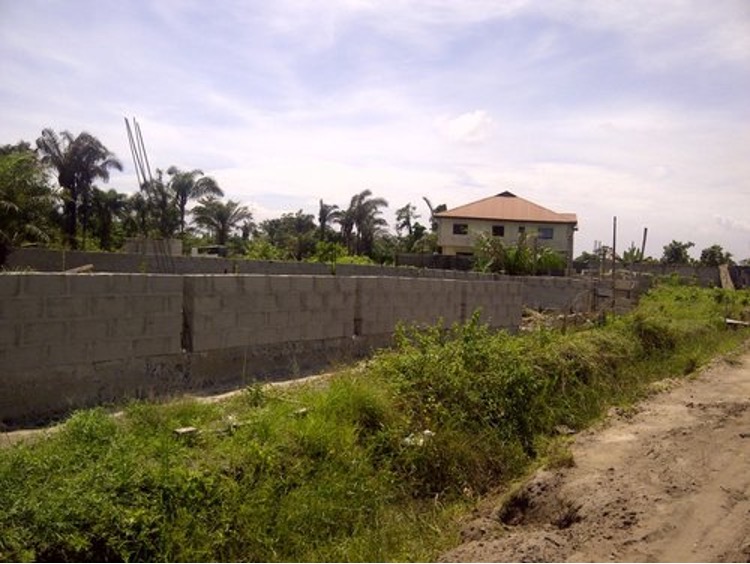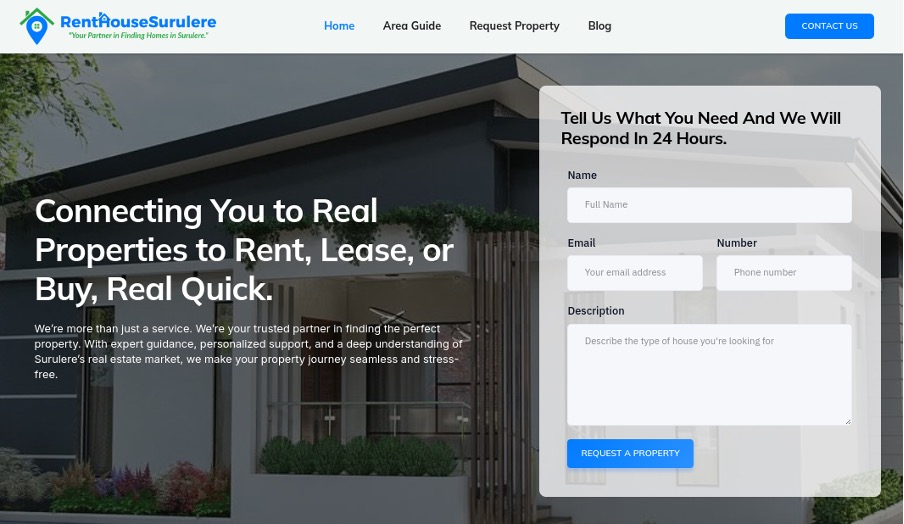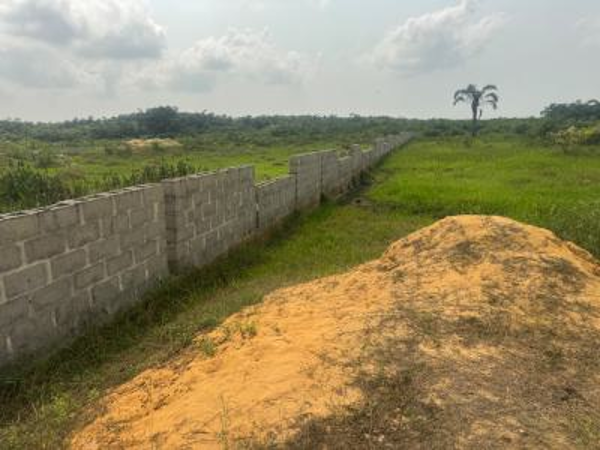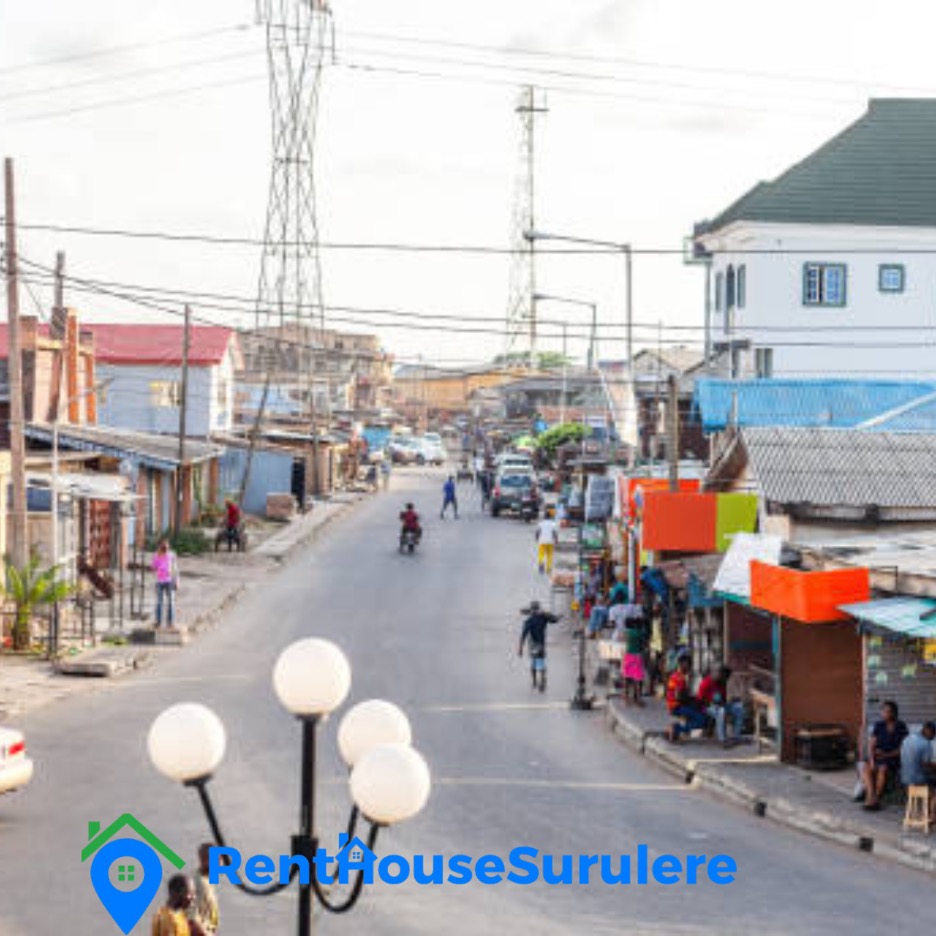Lagos is rife with land scam stories, and sadly, many of them are indeed true. But yours doesn’t have to be one of them.
According to the Economic and Financial Crimes Commission (EFCC), Nigeria lost billions of naira to real estate fraud between 2020 and 2023, with more than half of the losses occurring in Lagos. Many victims were just regular people trying to buy a family home or invest from abroad.
If you’re planning to buy or sell land in Lagos, here’s what you really need to know to avoid getting scammed.
Table of Contents
ToggleKey Takeaways From This Guide:
At RentHouseSurulere, we’ve heard many sad stories. That’s why we teamed up with our in-house property lawyers to put together this guide.
- Key warning signs and red flags in land deals include fake documents, Omonile issues, and double sales, among others
- Take reliable legal and procedural steps, such as conducting land registry searches, verifying titles (including Certificates of Occupancy, Deeds, and Surveys), and consulting with lawyers.
- Prioritize secured payments, site visits, checking seller credentials (LASRERA certified), and engaging professional help.
- Contact RentHouseSurulere for trusted and reliable buying or selling of landed properties in Lagos, whether you’re in Nigeria or the diaspora.
In many cases, it’s a lack of information. You really can’t avoid scams if you can’t spot them. So before we go into the main details, let’s look at some of the common tactics that these fraudulent individuals or real estate ‘businesses’ use in scamming people:
Common Types Of Land Scams in Lagos
We start with the elephant in the room.
1. Omo-Onile Extortion and Land Grabbing
This is the common scam type. Omo-Onile are members of landowning families who feel entitled to extort money from anyone buying land in their area. And they don’t stop at one payment.
Even after a buyer has paid for the land, these individuals often return with fresh demands, asking for settlement fees, foundation levies, or roofing charges.
Worse still, they might sell the same land to multiple buyers. Most of these transactions happen off the books. That is, no receipts, no legal proof, and sometimes not even a valid survey plan.
According to a 2023 report by the Lagos State Real Estate Regulatory Authority (LASRERA), over 40% of land disputes in Lagos can be attributed to Omo-Onile interference.
2. Fake Land Documents
Scammers can print out fake Certificates of Occupancy, Deeds of Assignment, Gazette copies, and survey plans. On the surface, everything may appear genuine.
But a closer check often reveals inconsistent names, mismatched dates, or formatting that doesn’t align with official records.
These fraudsters rely on buyers who don’t bother to verify anything at the Land Registry. As a result, you could end up thinking you own a plot, only to find out someone else has been sold the same land with a different set of fake documents.
3. Scam Developers and Cloned Agent Profiles
Many land scams have moved online. Today, it’s not hard to come across a polished Instagram page or website pretending to be a legit real estate company. Many of them steal names, branding, and listings from real firms.
These fake agents are usually hard to track. They don’t share proper IDs or company bank accounts. You won’t find any real CAC registration. And once payment is made, they vanish.
4. Off-Plan Projects That Never Exist
Many of those “Pay 10% and own a luxury unit” are examples of this tactic. Many buyers don’t request development permits before paying, and that’s where trouble often begins.
You pay a deposit, expecting construction to start… and then nothing happens. Either the developers disappear, or you discover the land has no building approval, or worse, it’s government land.
There are still other tactics in the land scam playbook that are being uncovered daily. However, despite this, people still purchase land safely without any issues. You can be among the lucky ones if you observe these cautions:
13 Sure Proof Ways To Avoid Land Scams in Lagos

If you observe these things, there’s no possible way you will fall for any scam when buying land in Lagos:
STEP 1: Never Begin Without a Property Lawyer
Before engaging with any agent, family, or developer, hire a real estate lawyer with experience in Lagos land transactions. Your lawyer will:
- Conduct due diligence on ownership and land history.
- Vet every document, agreement, and payment receipt.
- Ensure compliance with state property laws, e.g., the Land Use Act.
- Represent you if a dispute arises.
Do NOT rely on a “trusted family friend”, pastor, or agent without legal training.
STEP 2: Demand and Verify Title Documents
Never believe verbal claims of ownership. Demand physical copies of all land documents, including:
Key Legal Title Documents:
- Certificate of Occupancy (C of O)
- Governor’s Consent
- Deed of Assignment (properly stamped and registered)
- Excision and Gazette (for village lands)
- Registered Survey Plan (approved by the Surveyor General)
Take the documents to the Lagos State Land Registry, Surveyor General’s Office, and if excision is involved, check the Gazette. Confirm the land is not under acquisition, litigation, or encumbered.
STEP 3: Check the Lagos State Land Registry
Usually, your lawyer will oversee this. However, what it usually entails is visiting the Lands Registry, located at the Lands Bureau in Alausa, Ikeja.
There, you or your lawyer can conduct a land search, confirm the title number and plot location, check for government acquisition or disputes, and even verify the authenticity of the Deed of Assignment or C of O.
Pro Tip:
- You can also use the LASG e-Titling System
STEP 4: Use LASRERA-Registered Agents and Developers
LASRERA (Lagos State Real Estate Regulatory Authority) registers and monitors estate agents and developers.
Visit https://lasrera.lagosstate.gov.ng and search for the agent, developer, or company name you are looking for.
Avoid agents not listed. Unregistered agents are usually behind most Omonile and land scam problems.
STEP 5: Confirm the Survey with the Surveyor General
Even if you receive a Survey Plan, verify it at the Office of the Surveyor General. Ask questions like:
- Is the survey registered?
- Does it match the physical location?
- Is the plot layout consistent with land zoning?
Only SURCON-licensed surveyors can produce valid plans.
STEP 6: Visit the Land Physically
Never buy “off-plan” or “sight unseen.” Go yourself. Bring your lawyer, a surveyor, and ideally, a neutral third party. Ask these critical field questions:
- Is the land dry or swampy?
- Are there visible beacons or survey markings?
- Is the land fenced or demarcated?
- Are neighbors living around? Speak with them.
- Are Omonile boys or locals harassing people nearby?
- Can you freely access the land at any time?
If the seller says, “It’s not convenient to visit now,” run.
STEP 7: Ask the Right Legal Questions Before Any Payment
These are non-negotiable questions to ask the seller or developer:
- Is the land subject to court litigation or a police case?
- Has it been sold to more than one buyer?
- Is it communal or inter-family land with multiple claimants?
- Is the seller authorized to sell on behalf of the family or the original owner?
- Can the seller show the whole history of ownership?
Your lawyer should request the originals or certified true copies of every document, not photocopies.
STEP 8: Don’t Pay in Full Until You Verify Everything
NEVER pay 100% of the land cost upfront. Instead, use a milestone-based payment agreement (e.g. 30% after search, 40% after survey confirmation, etc.)
Insist on a contract of sale vetted by your lawyer. Ensure your agreement clearly states the title documents to be delivered, the timeline, and refund conditions.
STEP 9: Review ALL Contracts Thoroughly
Before signing anything, get the Contract of Sale or Deed of Assignment in advance.
Ask your lawyer to vet every clause, especially refund policies, penalties, transfer of title, and indemnity clauses.
If the seller refuses to let your lawyer review the documents, walk away.
STEP 10: Understand All Hidden Fees
Be sure you’re aware of any fee attached to the sale.
For example, the common ones are agency fee, legal fee, survey fee, development levy, documentation fee, omonile fee, community levies, signing fee, fence fee, infrastructure or estate fee.
Get a complete breakdown in writing before committing to payment.
STEP 11: Verify the Identity of the Seller
The person or company selling should have a valid government-issued ID (International Passport, Voter’s Card, NIN Slip), CAC Documents (if it’s a company), and Corporate bank account details (not personal accounts)
If it’s family land, are other family members on board about it? Not just one person.
STEP 12: Insist on a Proper Deed of Assignment + Governor’s Consent
Your land purchase is incomplete until the seller signs a Deed of Assignment in your name.
You should process the Governor’s Consent (as per the Land Use Act), and the deed has to be stamped at the Land Registry.
STEP 13: Trust Your Lawyer More Than the Seller
If your lawyer says, “walk away”, do so.
Sellers who avoid your lawyer, tell you to “trust me”, push you to pay fast, or hide documents are red flags.
Bonus Tip:
- Ask neighbors, community heads, and estate residents if the land or seller is known or has issues.
Meanwhile, many people don’t usually think about the post-transaction. After purchase, register your Deed of Assignment at the Lands Registry.
Apply for Governor’s Consent (required to perfect the title) and get your title registered under your name. This is what makes the land legally yours.
Buy/Sell Land in Lagos with RentHouseSurulere

At RentHouseSurulere, we understand the risks that come with buying or selling land in Lagos. That’s why we’ve built our entire business around trust, transparency, and verified processes.
Here’s how we operate:
- Every property we list undergoes a thorough background check, which includes title verification, ownership validation, and a review of legal documentation.
- We’re registered with LASRERA and work hand-in-hand with certified lawyers, registered surveyors, and accredited valuers.
- We offer virtual property tours, video calls, and secure digital agreements, allowing you to buy with confidence from anywhere.
- All transactions are routed through our official, verified company accounts and never through personal accounts or agents.
- Our website and social media channels give you access to real estate guides, blog articles, and expert interviews.
Our happy clients, glowing reviews, and repeat referrals demonstrate that when it comes to real estate in Lagos, RentHouseSurulere is the name you can trust.
The Bottom Line
To avoid land scams in Lagos, it comes down to exercising due diligence and patience.
Verify ownership thoroughly, confirm the physical details of the land with a licensed surveyor, speak to residents, hire an experienced lawyer, pay through secure channels, and complete all legal registrations.
With this, there won’t be any sad stories to tell.





